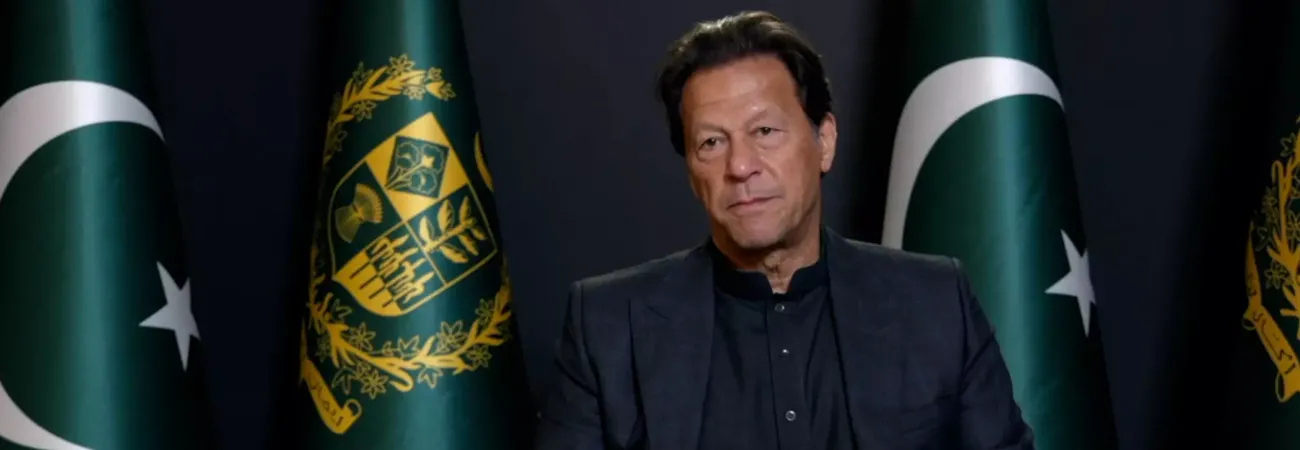i NEWS PAKISTAN
The Pakistan Electronic Media Regulatory Authority (Pemra) on Thursday informed the Lahore High Court (LHC) that there was no ban on broadcasting former prime minister Imran Khan’s speeches. The revelation was made by Pemra counsel Advocate Waqas Mir during the hearing of a petition filed by Imran — who is currently incarcerated at Adiala Jail — last year against the authority’s decision to bar all satellite TV channels from broadcasting his speeches and press talks. The ban was imposed with “immediate effect” after Imran had lashed out at former army chief Qamar Javed Bajwa for what he called “protecting incumbent rulers in their alleged corruption cases”. The PTI chief had subsequently approached the court and challenged the ban, arguing that Pemra’s order was “purely driven out of vengeance”. The LHC has so far conducted eight hearings on the case since its initiation, Imran’s lawyer Ahmed Pansota told reporters. Today, Imran’s legal counsel, Pansota, and the federal government’s lawyer appeared in court. LHC’s Justice Shams Mehmood Mirza presided over the proceedings.
During the hearing, the court emphasised that Pemra should refrain from exerting pressure on TV channels regarding the concerns raised by the petitioner. In response, Pemra counsel Mir said there was no ban on telecasting speeches of the petitioner. Following the brief arguments, the court wrapped up the petition. Imran vs Pemra In the prohibition order issued last year, Pemra had referred to previous directives wherein all licensees were directed to “refrain from telecasting any content against state institutions”. The authority had noted that Imran, in his speeches and statements, was “levelling baseless allegations and spreading hate speech through his provocative statements against state institutions and officers which are prejudicial to the maintenance of law and order and is likely to disturb public peace and tranquillity.” Pemra had said that licensees telecasted the content without the effective utilisation of the time delay mechanism, in violation of the authority’s laws and judgements by the apex court. “… therefore, the competent authority i.e.
chairman Pemra in view of the above mentioned background and reasons, in the exercise of delegated powers of the authority vested in Section 27(a) of the Pemra Ordinance 2002 as amended by Pemra (Amendment) Act 2007, hereby prohibits broadcast/rebroadcast of speech(s)/press talks (recorded or live) of Imran Khan on all satellite TV channels with immediate effect,” the order had said. The authority had also directed all satellite TV channels to ensure that an “impartial editorial board” is constituted to ensure that their platforms is not used by anyone for “uttering remarks in any manner which are contemptuous and against any state institution and hateful, prejudicial to law and order situation in the country”. Challenging the Pemra order, Imran had pointed out that the IHC had set aside a similar prohibition order in the past.
The petition had said that Pemra issued the order “in excess of the jurisdiction vested in it and without having regard to the constitutional rights guaranteed under Articles 19 and 19-A of the Constitution”. It had further contended that the authority was not empowered to issue a blanket prohibition order, which appears to be “in violation of the principle of proportionality”. The plea had argued that according to Section 8 of the Pemra Ordinance, one-third of the total number of members were required to constitute quorum for meetings. But the meeting which passed the order against Imran comprised only the chairman and three members which made the order “coram-non-judice”. It had contended that Pemra’s order was “illegal, unlawful, more than its jurisdiction, and contrary to the fundamental rights as enshrined under the Constitution” and liable to be set aside.
Credit: Independent News Pakistan (INP)









